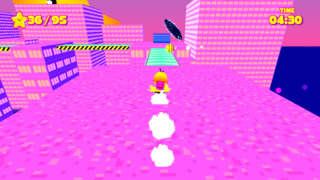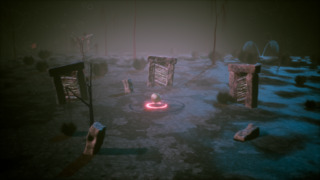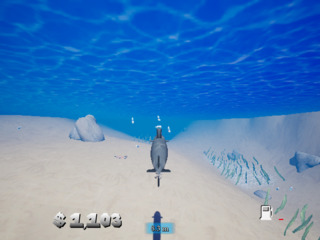Lo-Fi Plays V: Five Obscure Indie Games
By gamer_152 0 Comments

Lo-Fi Plays is a series in which I look at short indie games made by single people or tiny teams. The releases I review don't receive a lot of fanfare, but almost every video game is doing something that merits attention. Usually, I feature six different titles here, but this week, most of the games are longer than the items I typically showcase, and I have more to say on each. So, this will be a five-parter. Some of these games, you can download for free, others are paid, but if you enjoy the "name your own price" projects, please consider chipping the developer a few bucks for them too. Without any more hesitation, here they are.
Dépanneur Nocturne

You know those spooky supernatural stories where some unsuspecting mark enters an emporium of cursed objects? Dépanneur Nocturne wonders what one of those occult antique outlets might look like in the modern world, pauses for a moment, and then shows you not a wood-panelled basement staffed by a caricatured creep but a convenience store overseen by an inviting goth. With its cool blue exterior and the soft gradients of its interior, Dépanneur Nocturne understands that late at night in the pouring rain, a corner shop can be a sanctuary. This is a place where you can luxuriate in the lack of time pressure. Slow down and find a gift for your beau at a speed that suits you.
Going to the off-license can also be a step into the Twilight Zone. Looking over some weird drink you got from the cooler can feel like studying an ensorceled trinket, accepting the sacred privilege of the bathroom key can feel like entering a forgotten dungeon. Dépanneur Nocturne is not an especially long game for $5, but like in The Norwood Suite, which we looked at last week, the mundane and mystical sit right next to each other on its shelves. The thought experiment of which superpowered curio you might pick, given the chance, is also a fun "what if?", especially if you can compare your answer to friends'.
Dépanneur Nocturne is $4.99 on itch.io or Steam
Toree 3D

There is not an unhappy bone in Toree 3D's body. Time warping back to the mascot platformers of the PS1 and Dreamcast, the game is a peacock of magnificent teals, candyfloss pinks, and toxic purples. It uses its dazzling colour palette to maintain a distinct visual identity even while freewheeling from windy seaside industrial zones to cyberpunk streets. Auditory details like the squeaking of the protagonist's shoes or the precious "hup" when they jump layer on some character, while the soundtrack apes some of the coolest video game music emigrating from Japan in the 90s. The synths can be gleaming and exuberant or thud away like The Matrix soundtrack, while the rock boasts a breezy, steely guitar. I've still got the main theme stuck in my head.
Toree 3D is like a Sonic Adventure filtered with more discernment. Sure, as a $1 indie game, it isn't anywhere near as polished as a platformer made by a full Sega studio. Still, it includes a bumping soundtrack and high-flying traversal without getting bogged down by Adventure's physics jank, occasionally disobedient camera, or questionable character portrayal. Levels often involve exhilarating roleplay scenarios, like jumping from one moving car to another or skiing down a mountain. The game expects you to have experience with primitive 3D platformers not just by trying to appeal to that aesthetic but also in its difficulty. All levels are doable in time, but the ranking system and checkpointing are strict senseis. For your one buck, you get plenty of bang, with the game lodging nine levels, each having its own collectable count and ranking to perfect.
Toree 3D is $1.00 on itch.io or Steam
The Passive Voice

Despite its exquisite lighting and professionally-rendered models, The Passive Voice requires some indifference to ugliness to get through. It is also relying on some intolerance of it in order to unseat you. A semi-biography of developer Ducky Elford, this diary is a record of discrimination, exploring the underserved horror topic of what it feels like to have anxiety-inducing everyday interactions. Frequently, the people that Elford talks to misinterpret neurodivergence as stupidity or incompetence and receive it as an invitation to lash out at Elford. There should probably be a warning in here for brief mentions of abuse. The conversation between the title of the game and its content suggests a character who is acted upon rather than acts or uses the literal passive voice out of a lack of confidence.
The methods of conveyance for Elford's experiences are Marble Madness-scented overworld tasks, blinks of avant-garde films, and pseudo-hand-drawn vignettes about self-appointed drill sergeants excoriating the protagonist. Marble Madness might sound like too playful a source of inspiration for a drama, but The Passive Voice uses imprecise movement mechanics to express what it's like to try and navigate a space where you don't feel like you fit. You need to lift and slam down your mouse again over and over to get moving, but once you pick up speed, it's hard to brake. That the scenes of others deriding you loop until you leave suggests that they cycle through the character's head as long as they let them. Oddly enough, the game reminds me a bit of the Pop Team Epic TV show, where the production-intensive sketches let you know that its creators are capable of beautiful artistic feats, but the cruder, chicken-scratch scenes act as a dadaist protest against them. There's a lot of suffering poured into this game.
The Passive Voice is free on itch.io
Working Tidal

Something less serious again. In Working Tidal, you control a submarine, which is a kind of mechanical fish. You're a salvager with a debt to offload, and the game is a soaking-wet easter egg collect-a-thon. Low-value strings of junk fill your appetite in between the meatier morsels of worth that have fallen to the ocean floor. Donut County-style, each good you dredge up comes with its own curious description. Reaching the credits means earning enough to reinforce your submarine for the murkiest depths. So, you must replay each level a few times, holding in memory the locations of the high-ticket treasures.
We've seen a storm of these PS1 demakes in recent years: entertainment in which aliasing and blocky models become assets instead of liabilities, but props to Working Tidal for taking it somewhere new. The sim is a game of two halves, and in the first, the graphics skew Wave Race, but the soundtrack likes to Ridge Race, importing chillwave for the menus but laying on a party of breakbeat bangers for the main event. The second half of the game is resolutely horror, and I don't want to give away too much, but when games do subaquatic terror, they're usually about test facilities gone disastrous or the terrifying animals that lurk in the deepest-set valleys. Working Tidal plays in the same waters, but its final act is more barren than that, and its ultimate endpoint more conceptual. It reminds me of Outer Wilds' depressive spells. With its cool urban soundtrack and fun acquisition in a capitalist-critical future, it's got more than a whiff of Umurangi Generation about it.
Working Tidal is free on itch.io
Promesa

Promesa is a narrative explorer told from the perspective of someone holding memories tight in their palm, even as they commit to slipping from their grasp. It's normal to want to conceptualise our memories as films of our lives, but the brain doesn't store moments in their totality as a camera does. Promesa is founded on the selectiveness of recollection and is not just constructed from what the character's mind saved but also what it's missing. Each playthrough is a montage of scenes randomly chosen from the game's collection. The game will miss levels out like an old man telling a story will miss out events.
Some scenes wrap all the way around us, but other times, areas outside the focus of the memory trail off into a void, we see objects divorced from context, or remember things that couldn't have happened. These thoughts can be figurative or literal, and some contain translucent, monochrome objects, the storyteller's mind apparently having recorded the geometry of them but not the material. White stucco walls and tiled floors deliver a traditional Spanish urbanity to the levels, each of them convincing enough that they could be based on places that exist. From a distance, the memories often appear holistically detailed, especially because they have all the little objects that would fill a street or home. Yet, as we edge closer, the pixelated textures betray imperfect recall.
There are memories that fade before we'd want to, but then there are others that linger, or maybe we linger in them. Untethered from physical limitations, we soar through some landscapes, but whether walking or floating, we move at a glacial pace. Perhaps this speed represents the protagonist's want to stay and soak in every detail of each place, but it could as easily be that in their old age, their body imposes this slog upon them. Their contemplation would be a result of them being forced to stay in the same rooms and alleys for minutes at a time. In nerd media, we tend to treat nostalgia as a purely jubilant thing, but that "algia" at the end of the word comes from a root meaning grief or pain. Even the memories in Promesa not explicitly linked to sorrow exude longing and loneliness.
Promesa is $6.00 on itch.io or Steam
___
I hope you've found something here that sounds worth playing. Thanks for reading.